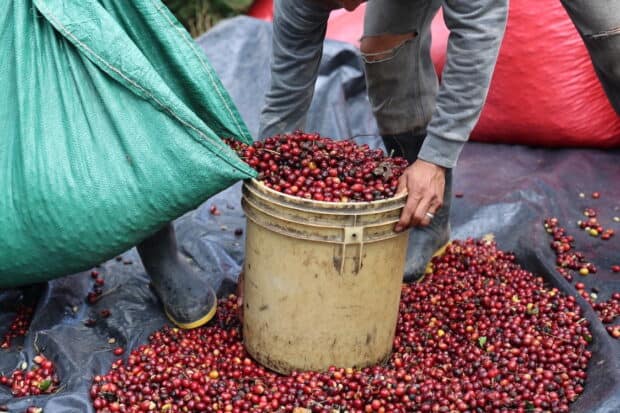Today, money and goods are exchanged across great distances more efficiently than ever, but the final leg of the journey, the “last mile,” is often the most challenging.
If you order a product online, it often takes more resources to get the product to your home from a nearby distribution hub than it does to get it shipped to the hub from a manufacturer halfway across the world. The same can be true when it comes to humanitarian aid. Food and medical supplies often move efficiently to the port of a country in need, but actually getting them in the hands of individuals takes enormous human effort in the last mile. The coffee purchasing chain is no different.
For decades, the coffee industry has tried to address the inequities in its supply chain by ensuring that fair prices are paid. Fair trade ensures a minimum price to cooperatives of smallholder farmers, while “direct trade” tends to ensure that non-smallholder farmers receive a favorable price for their product directly from the buyer.
Both concepts focus on increasing the amount of money that ends up in the vicinity of the people who do the hard work of growing and harvesting coffee. Both concepts are also scalable — for the very reason that they generally avoid getting into time-consuming work in the last mile, to the farmworker.
Yet more needs to be done to ensure that money paid to cooperatives actually benefits smallholder farmers, and that money paid to non-smallholder farmers actually benefits farm workers. If more is not done, coffee farmers and workers will continue to live in poverty or be forced to leave our industry.
The work in coffee’s last mile is far from easy. First and foremost, trusting relationships need to be established between the coffee buyer and seller, which may take years of commitment. For us, that has meant many visits to the coffee producer, often for weeks at a time. But without taking the time to establish trusting relationships, it is extremely difficult to understand the conditions under which coffee workers live — away from non-smallholder farms or the offices of a cooperative. On top of that, it requires verification that each person who does the hard work of growing and harvesting coffee receives a fair and livable wage.


